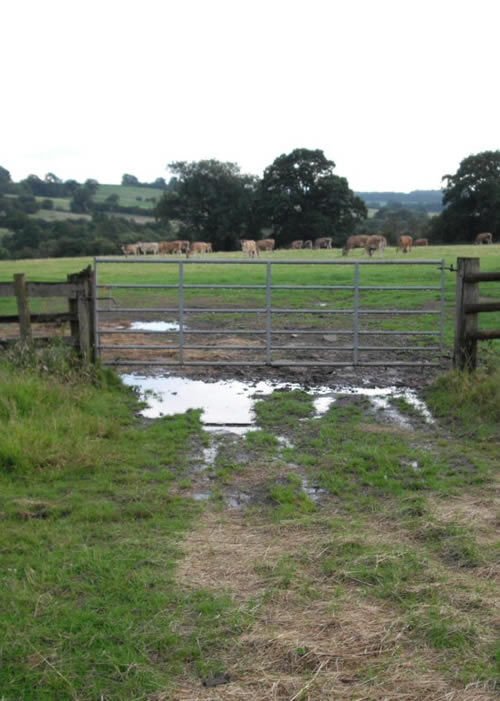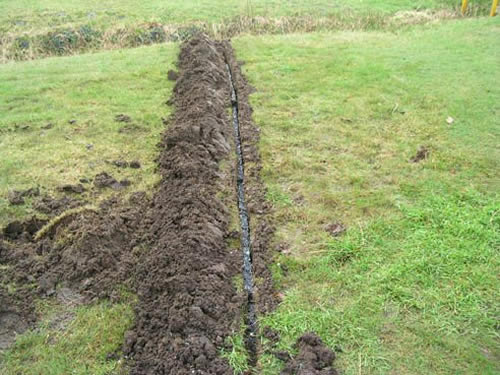
Flooding either side of farm gateways, caused by soil compaction due to the constant crossing of tractors and heavy equipment, can now be completely overcome thanks to a new British drainage system made entirely from recycled plastic – including silage wrappers.
Aquadyne is the invention of farmer John Gaskarth. He knew that a patch of land at his farm in North Yorkshire remained perfectly dry, regardless of the weather. Working with researchers from Newcastle University he discovered that the drainage was installed almost 2000 years ago by occupying Romans.
Together they discovered that the clever Roman farmers laid blackthorn briars in a trench. To this day it removes excess water by a wick system – rather like an oil lamp. The water trickles down through the ancient briars without ever becoming clogged up.
The product is manufactured in panels, which are installed vertically in wet areas. The water simply trickles down through the mixed recycled plastic in precisely the same way as the Roman’s blackthorn trench.

"Farm gateways have to cope with regular and often heavy weight traffic. Installing Aquadyne ensures the soil will dry out almost completely. These panels will bear up to 1000 tonnes per square metre so they will easily cope with farm traffic," says James Arrowsmith of Aquadyne.
There is no need to dig trenches as with conventional drainage systems. Aquadyne sits just four inches below the ground and needs a slot just 12 inches deep and four inches wide. Each panel will drain up to 20 litres of water per second and it works continuously, never becoming clogged.
In addition to farm gateways, it can be used to drain off damp areas of pasture fields, dry out tracks and roads and non-metalled farmyards. It cannot be used on cropland because, being installed so close to the surface, it will be ruined by ploughing.
"Excess water can also be drained off into adjacent ditches. It has a flow rate ten times that of sand, even under pressure. It is also environmentally friendly; it is made from 100% recycled plastic that would otherwise be burned, go to landfill or blow about the countryside," added James.
